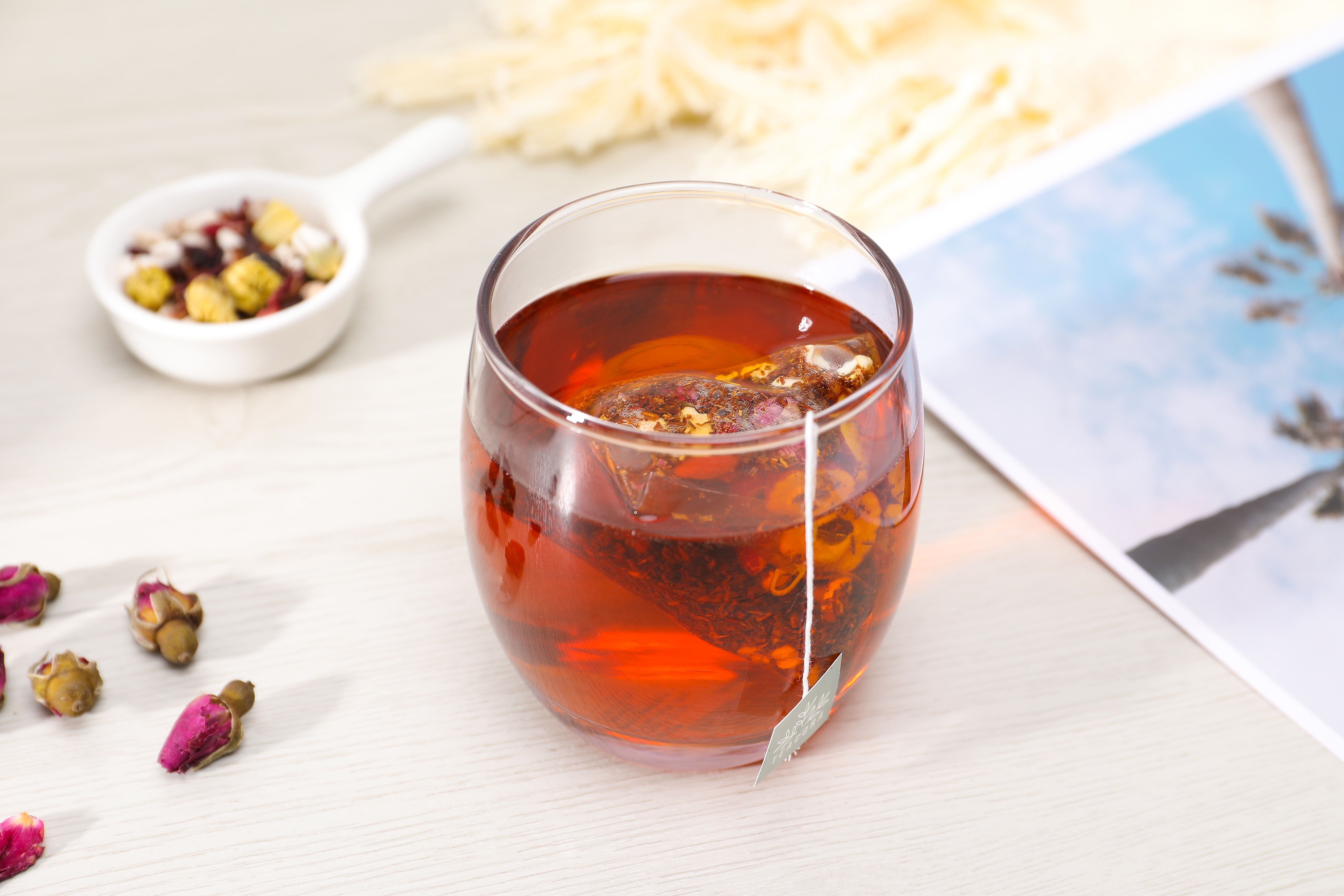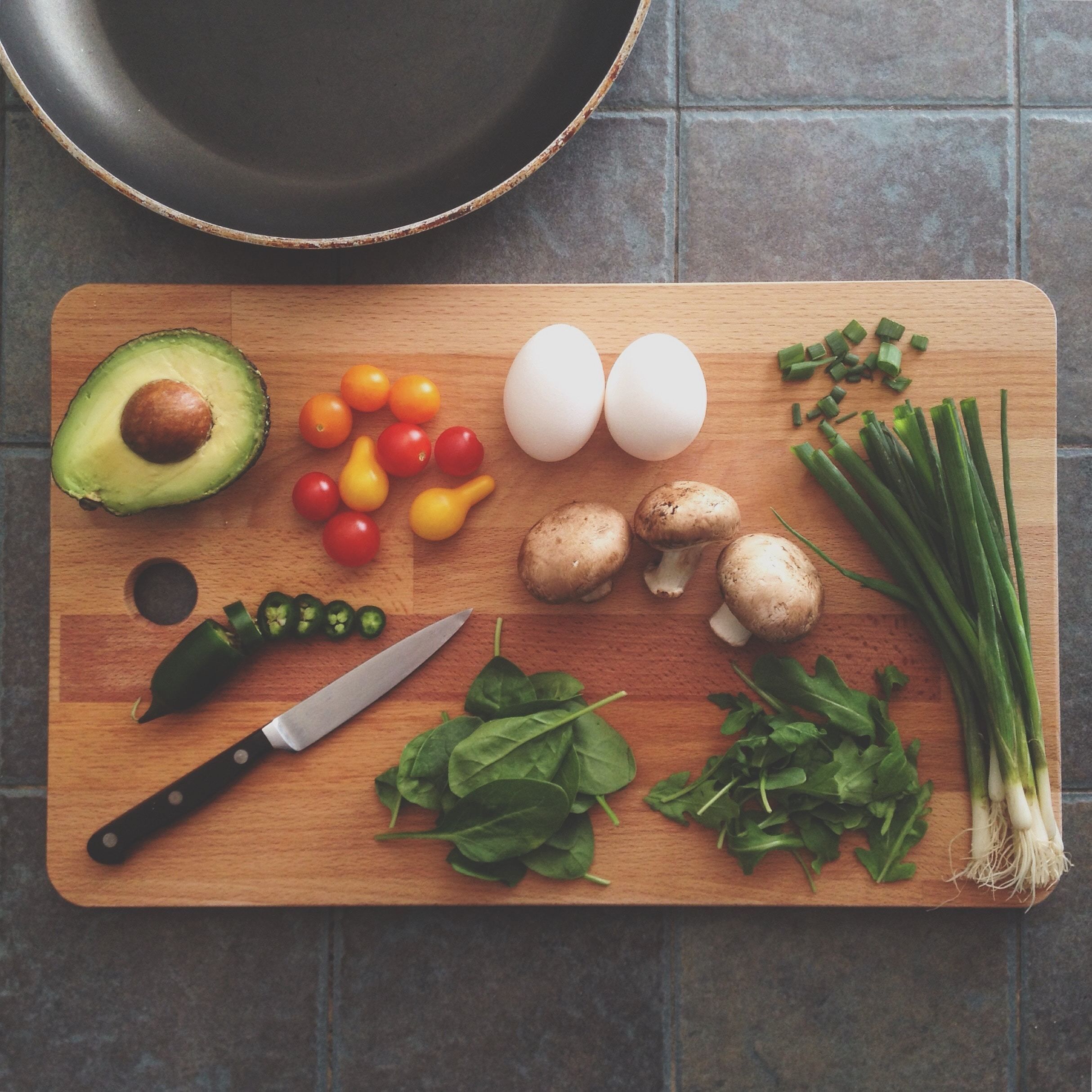
1. Green tea
Green tea comes from the same shrub as black tea, but the leaves are processed differently, allowing them to retain their green color.
The health-promoting compounds in green tea are called polyphenols.
To brew green tea, steep a tea bag or loose tea leaves in a tea infuser for five minutes. Matcha powder is finely ground green tea leaves, and you can simply stir a spoonful into hot water or milk.
While green tea is safe to consume for most people, it contains caffeine, which may negatively impact sleep in some people. Plus, drinking large amounts of this beverage may inhibit iron absorption.
In addition, compounds in green tea can interact with certain medications, including acetaminophen, codeine, verapamil, nadolol, tamoxifen, and bortezomib, so check with your healthcare provider — especially if you drink a lot of it.
2. Holy basil
Also known by its Hindi name tulsi, holy basil is a perennial plant native to India and Southeast Asia. In Ayurvedic medicine, it’s known as “the incomparable one” and “queen of herbs” due to its wide range of health-promoting properties.
Both animal and human studies have found that holy basil has anti-inflammatory properties that may reduce blood sugar, cholesterol, and blood pressure levels.
Compounds in the leaves and seeds of the holy basil plant may also reduce uric acid levels, alleviating the pain that results from inflammatory conditions like gout and rheumatoid arthritis.
Some of holy basil’s compounds fight inflammation by inhibiting the cox-1 and cox-2 enzymes, which produce inflammatory compounds and trigger pain, swelling, and inflammation.
Holy basil or tulsi tea is available at many natural food stores and online. To brew it, use loose leaves or a tea bag and let it steep for five minutes.
Tulsi tea should be safe for most people to drink every day.
3. Turmeric
Turmeric is a flowering plant with an edible root or rhizome that’s often dried and made into a spice. The root can likewise be peeled and minced.
The active ingredient in turmeric is curcumin, a yellow compound known for its many health benefits. It reduces inflammation and pain by interrupting some of the pathways that lead to this condition.
Turmeric and curcumin have been studied for their effects on chronic inflammatory illnesses like rheumatoid arthritis, IBD, and heart disease. They may also relieve arthritic joint pain and muscle soreness after exercise — both of which are caused by inflammation.
If you want to try turmeric tea, simmer 1 teaspoon of either powdered turmeric or peeled, grated turmeric root in a pot with 2 cups (475 ml) of water for about 10 minutes. Then strain the solids and add lemon or honey to taste.
Curcumin is better absorbed with some black pepper, so add a pinch to your tea.
4. Ginger
Over 50 different antioxidant compounds have been identified in ginger. Many of them minimize the production of cytokines, which are pro-inflammatory substances in your body.
Due to its slightly sweet and spicy flavor, ginger makes a delicious tea. Simmer 1 tablespoon of fresh, peeled ginger or 1 teaspoon of powdered ginger with 2 cups (475 ml) of water. Strain it after 10 minutes, and enjoy it with lemon or honey.
5. Rose hip
Rose hips are the coral-red, round, edible pseudo-fruits that are left after a rose bush loses its flowers.
They have been used as an herbal medicine for more than 2,000 years, as they’re packed with antioxidants, including beta carotene and vitamins C and E.
Rose hips contain phenolic compounds, which are powerful anti-inflammatory antioxidants that protect your cells from damage.
Studies show that rosehip powder reduces pain and other symptoms related to rheumatoid arthritis by limiting the production of pro-inflammatory cytokine chemicals.
To make rosehip tea, use about 10 whole, fresh or dried rose hips and mash or crumble them. Mix them with about 1 1/2 cups (355 ml) of very hot (not boiling) water and let them steep for 6–8 minutes. Strain the drink to remove the solids and add honey if desired.
6. Fennel
The flavor of the seed and bulb from the Mediterranean fennel plant is often compared to that of licorice or anise. So if you’re a fan of these, fennel makes a delicious tea that also fights inflammation.
Like rose hips, fennel is full of anti-inflammatory phenolic compounds. Some of the most active ones are caffeoylquinic acid, rosmarinic acid, quercetin, and kaempferol.
Fennel tea is easy to make with fennel seeds from your spice rack. Pour 1 cup (240 ml) of boiling water over 2 teaspoons of crushed fennel seeds and let them steep for about 10 minutes. Add honey or sweetener if you like.
Tips and precautions for tea drinkers
Here are a few tips to keep in mind.
Brew a better cup
When brewing a fresh cup of tea, use loose leaves with a tea infuser rather than a tea bag if possible. A study on antioxidants in tea found that loose-leaf teas tend to contain more anti-inflammatory antioxidants than tea bags.
The same study noted that when steeping tea, 5 minutes is long enough to extract 80–90% of its antioxidant content. A longer steeping time doesn’t extract much more.
Be creative and combine different teas and other anti-inflammatory herbs, spices like cinnamon and cardamom, or even fruits like lemon or orange slices. Many of these ingredients work together to provide even more health benefits.
Don’t forget that teas are made from plants, which can spoil or lose their potency over time. Always use fresh ingredients when brewing your tea.
Be careful about your tea’s quality and quantity
While teas can help fight inflammation and provide various other health benefits, there are some concerns to consider.
Some tea plants are treated with pesticides and herbicides, so try to choose high-quality, organic or pesticide-free varieties.
In addition, teas should be stored in an airtight container in a dark, dry place. If not stored properly, they can harbor mycotoxins, a harmful byproduct from a fungus that can grow on some foods and has been found in tea.
Finally, some teas may interact with medications, supplements, or herbs if you drink a lot of it. Consult your healthcare practitioner if you have concerns about possible interactions.
*article courtesy of www.healthline.com


